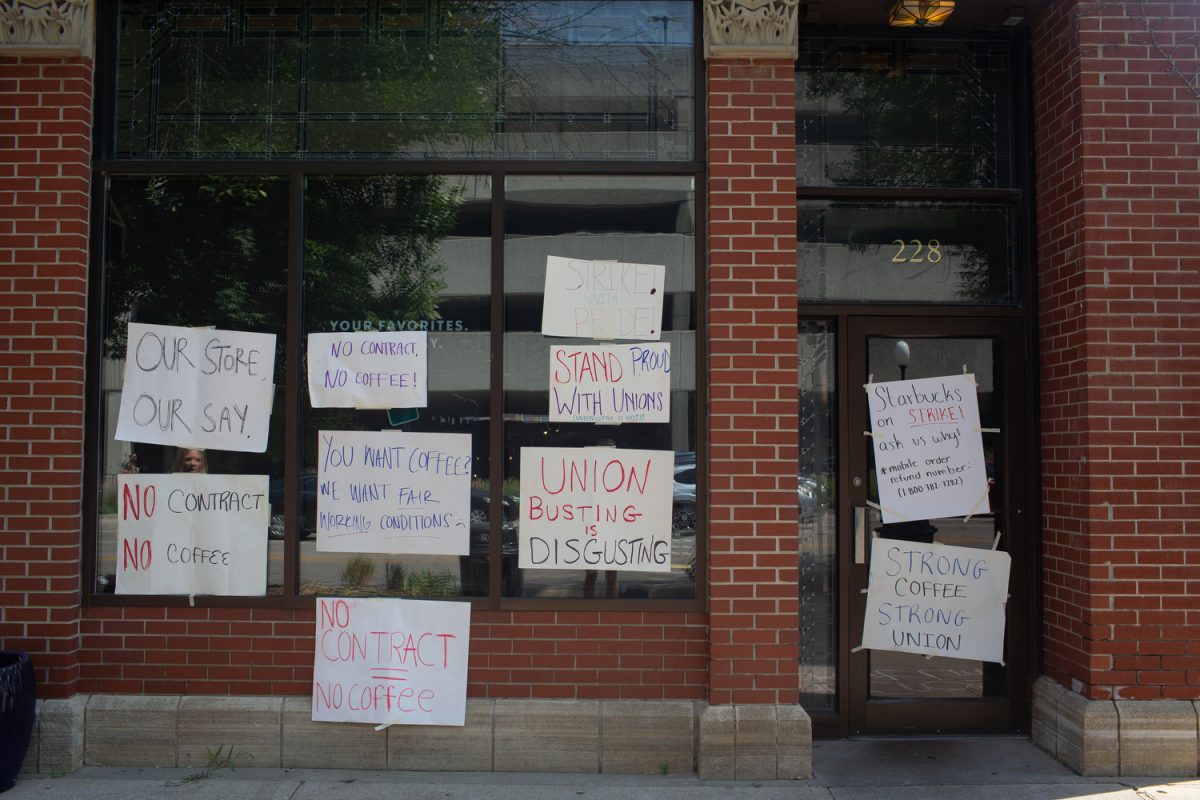This is a developing story. Check back for updates.
After employees from the Clinton Street Starbucks became the first to unionize in Iowa, its workers are on strike for the second time this year. The employees are demanding fair working conditions and a better contract, according to posters taped to the location’s windows Monday.
The decision to strike on the first day of classes was intentional, according to Abi Scheppmann, a Starbucks shift supervisor. Scheppmann said the first day of classes tends to be a busy sale day for the location, and closing would have a heightened impact.
She said the location’s strike captain sent a letter to the store manager and district manager at 5:30 a.m., informing them that employees would be going on strike for the day.
“We’ve been having problems with our store’s specific manager for a while,” Scheppmann said. “On Thursday of last week, we delivered a letter to our district manager detailing all of the problems we’ve been having and our frustration at the fact that they haven’t been addressed by Starbucks.”
Scheppmann said tension in the workplace had been a recurring issue, calling attention to comments made by the store’s manager and other leadership issues.
“Just like inappropriate comments being made to baristas,” Scheppmann said. “A lot of, like, talking down and just being, like, rude to our faces.”
The Starbucks employees last went on strike for one day in June after employees were told they could not put up Pride Month decorations in the store. The location was temporarily closed before managers stepped in to reopen in the afternoon.
RELATED: Newly unionized Starbucks workers strike for fair contract, LGBTQ+ rights
The Clinton Street Starbucks was the first franchise location in Iowa to unionize last spring through Starbucks Workers United, a national union with over 350 stores unionized and 8,500 union partners. The Starbucks employees voted unanimously in May to unionize.
In the past, Starbucks employees told The Daily Iowan that severe weather and active shooter alerts were not handled properly for employee safety, and their concerns were disregarded.
Sabine Martin and Jami Martin-Trainor contributed to this article.



